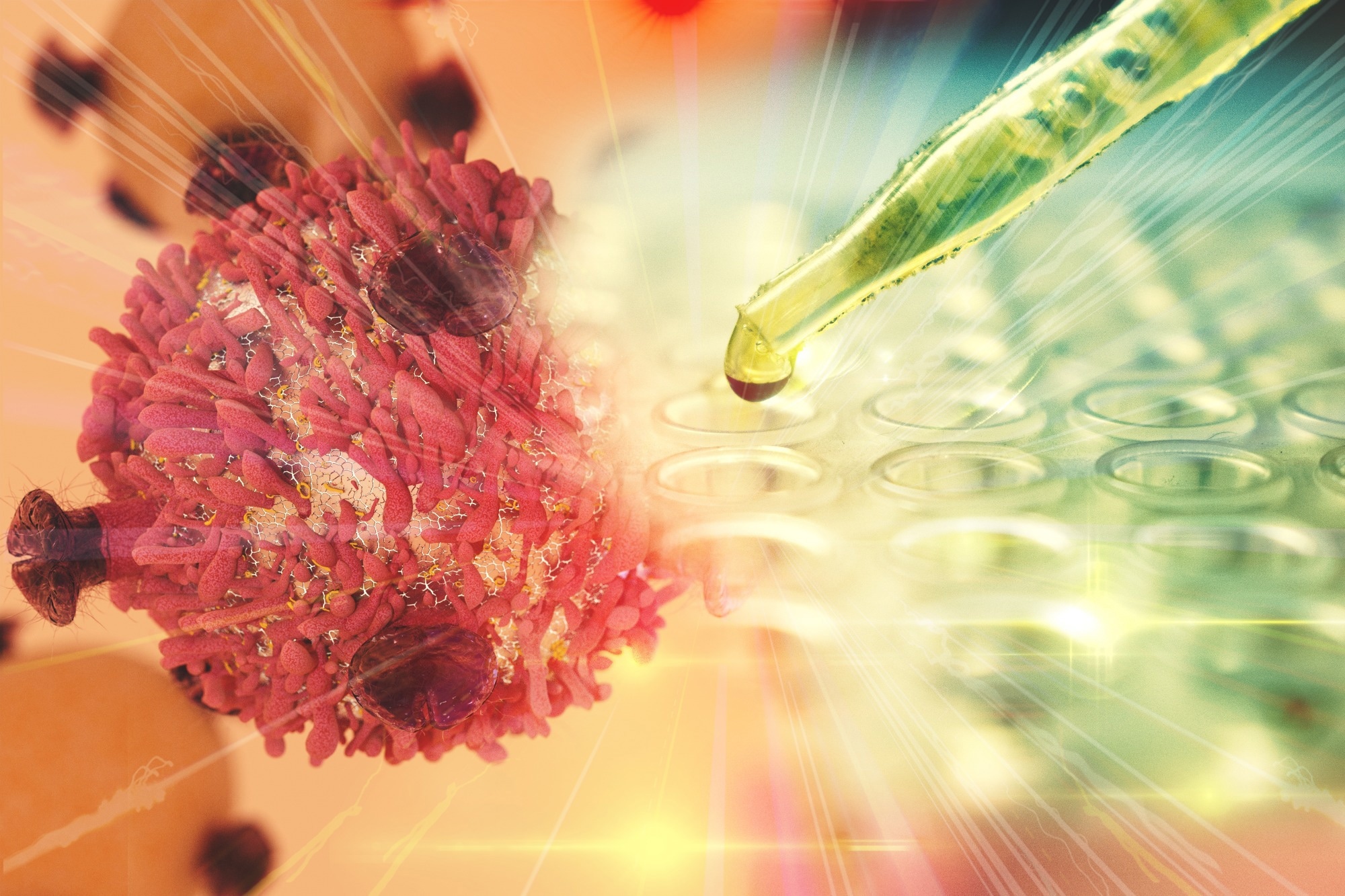Immunotherapy continues to gain traction as a promising approach to cancer treatment. Chimeric antigen receptor (CAR) T-cell therapy, in particular, works by genetically modifying T-cells to recognize and eliminate cancer cells. While this strategy has shown notable success in treating blood cancers, its effectiveness in solid tumors remains limited.

Image Credit: CI Photos/Shutterstock.com
One major challenge lies within the solid tumor microenvironment (TME), where immunosuppressive cytokines can hinder the tumor-killing activity of T-cells. As a result, the TME plays a critical role in shaping treatment outcomes, and a deeper understanding of its influence is key to improving the efficacy of CAR T-cell therapy.
The advantage of employing three-dimensional (3D) patient-derived organoids (PDOs) lies in their ability to replicate the physical and chemical cues present within the TME, which are often absent in traditional two-dimensional (2D) monolayer cultures.
Research indicates that PDOs exhibit drug response patterns similar to those of the original tumors, underscoring their potential to enhance therapeutic outcomes. Thus, PDOs represent a superior preclinical model compared to 2D systems due to their inherent heterogeneity, long-term stability, suitability for high-throughput screening, and improved ability to capture tumor characteristics.
Despite the advantages associated with PDOs, significant barriers hinder their widespread adoption in drug discovery, primarily due to the high costs and labor-intensive processes required for their growth and maintenance.
To overcome the challenges of using PDOs in large-scale applications, a semi-automated bioreactor was developed for the efficient expansion of assay-ready organoids.
This solution enables the reproducible production of millions of assay-ready patient-derived organoids.
In this study, a workflow was established to quantify T-cell efficacy in solid tumors using PDOs.
By utilizing bioreactor-expanded patient-derived colorectal cancer organoids (CRCs), activated human peripheral blood mononuclear cells (PBMCs) were introduced to the CRCs in a 384-well microtiter plate, monitoring them every four hours for three days via high-content imaging.
To assess T-cell-induced morphological changes, each organoid was segmented in the transmitted light (TL) channel using a deep learning U-net model, and relevant features were extracted. These features were classified with a trained Random Forest model to distinguish morphologically altered organoids from intact ones.
The resulting features were classified with a trained Random Forest model to differentiate morphologically altered organoids from intact ones. This approach revealed that, compared to control wells, the proportion of modified organoids in wells treated with stimulated PBMCs increased rapidly, reaching a fluctuating plateau within approximately two days, indicating the potential of a live T-cell efficacy assessment method, with or without labeling.
The study highlights the potential of combining bioreactor-expanded organoids with advanced image analysis for large-scale T-cell–based screening.
Download the App Note
Acknowledgments
Produced from material originally authored by Zhisong Tong from Molecular Devices.
About Molecular Devices UK Ltd 
Molecular Devices is one of the world’s leading providers of high-performance life science technology. We make advanced scientific discovery possible for academia, pharma, and biotech customers with platforms for high-throughput screening, genomic and cellular analysis, colony selection and microplate detection. From cancer to COVID-19, we've contributed to scientific breakthroughs described in over 230,000 peer-reviewed publications.
Over 160,000 of our innovative solutions are incorporated into laboratories worldwide, enabling scientists to improve productivity and effectiveness – ultimately accelerating research and the development of new therapeutics. Molecular Devices is headquartered in Silicon Valley, Calif., with best-in-class teams around the globe. Over 1,000 associates are guided by our diverse leadership team and female president that prioritize a culture of collaboration, engagement, diversity, and inclusion.
To learn more about how Molecular Devices helps fast-track scientific discovery, visit www.moleculardevices.com.
Sponsored Content Policy: News-Medical.net publishes articles and related content that may be derived from sources where we have existing commercial relationships, provided such content adds value to the core editorial ethos of News-Medical.Net which is to educate and inform site visitors interested in medical research, science, medical devices and treatments.